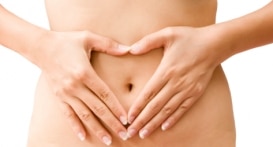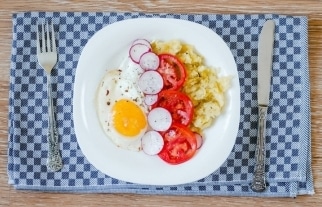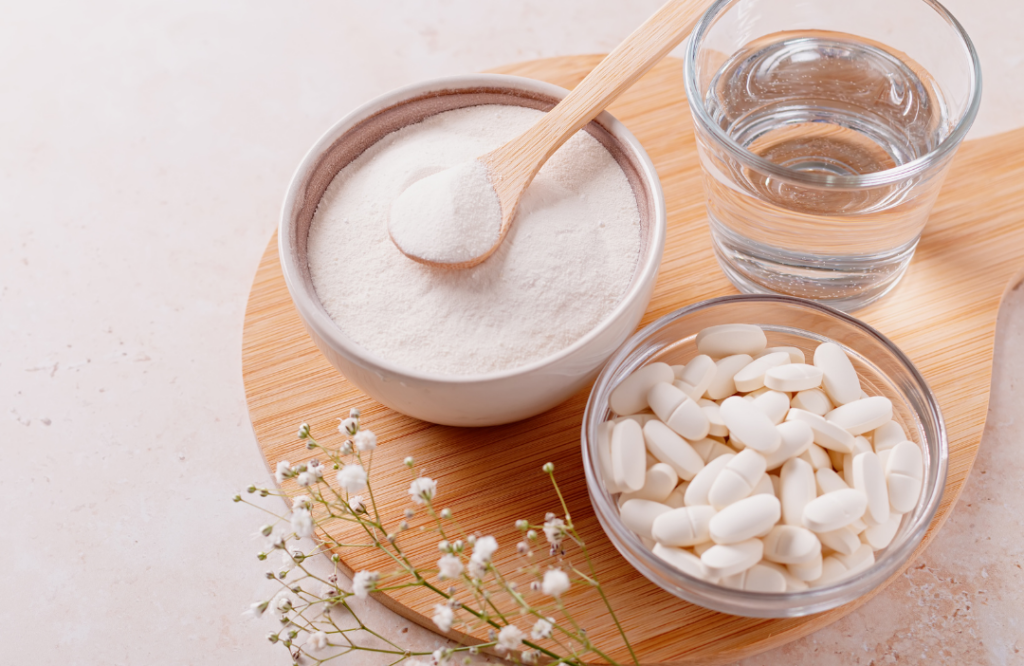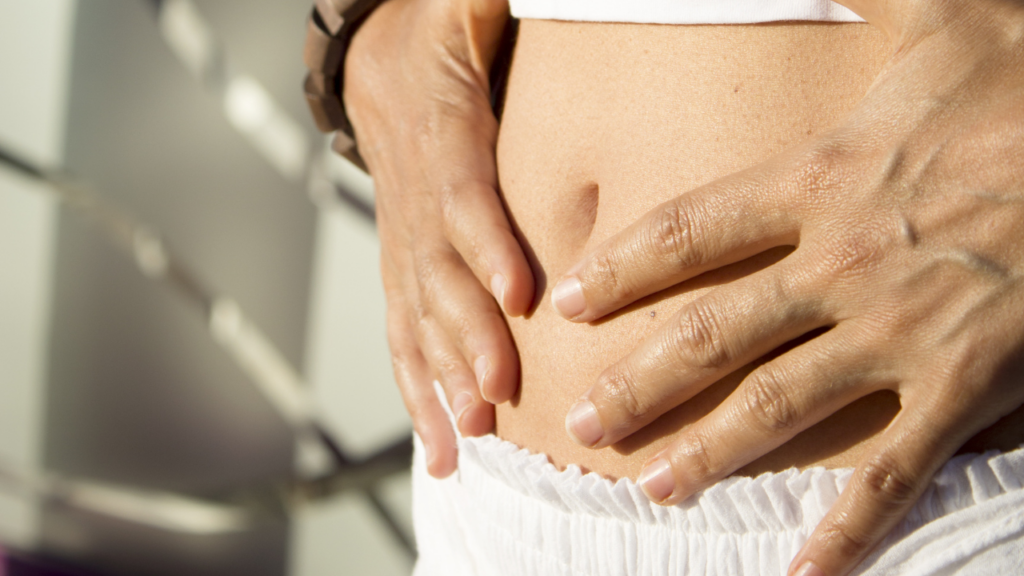5 Little Known Tips to Improve Digestion
Published on March 8, 2016 by Dr. Caitlin Gordon
If you want to improve digestion, how you eat matters almost as much as what you eat. You may have the perfectly clean diet and still find you suffer from digestive symptoms like bloating, burping, fatigue, gas, weight gain, constipation. You may have headaches, circulatory problems, brain fog, or sleeping issues. This seems baffling based on your balanced diet, but from a Traditional Chinese Medicine (TCM) standpoint, how you are eating your food plays a major role in health. The following tips for digestion can be the difference between feeling amazing or terrible after eating.
Chewing
This may seem obvious, but it’s important to thoroughly chew your food to improve digestion. Your saliva contains amylase, an enzyme that helps break down carbohydrates. The digestive process begins with chewing. You break down the building blocks of food manually and chemically by chewing well. If  there is any digestive weakness (and most of us have some), it is especially important that we chew food or eat food that is already somewhat broken down like soups, steamed veggies, cooked foods, marinated or massaged meat, etc. If you experience frequent bloating, gas, burping, heartburn, or feeling 0ver-full, there’s a good chance you aren’t chewing very well. Try to slow down and chew every bite a minimum of 20 times. Food should have a soupy texture in your mouth before swallowing.
there is any digestive weakness (and most of us have some), it is especially important that we chew food or eat food that is already somewhat broken down like soups, steamed veggies, cooked foods, marinated or massaged meat, etc. If you experience frequent bloating, gas, burping, heartburn, or feeling 0ver-full, there’s a good chance you aren’t chewing very well. Try to slow down and chew every bite a minimum of 20 times. Food should have a soupy texture in your mouth before swallowing.
Chewing also tells the rest of your digestive process to pay attention. Stomach acid, pancreatic enzymes, even insulin response all react to the act of chewing. It can be helpful to use a chewing action even with foods that don’t require chewing like soups or smoothies. The act of chewing will help regulate blood sugar by preparing your body for the dose of glucose it’s about to receive. For this same reason, chewing gum can cause digestive upset and blood sugar imbalance, as it confuses your body into thinking food is coming when it is not!
Sitting
Sitting down while you eat a meal will improve digestion. Sitting does several important things. It tells your brain that this is not the time for action, but instead of resting and digesting. From a nervous system standpoint, it’s important that our body is in parasympathetic (rest and digest) mode, as opposed to sympathetic (fight or flight) mode. When our adrenaline is pumping and we are running around or stressed, our brain and gut-brain don’t signal the proper digestive functions like secreting enzymes from the pancreas, stimulating peristalsis (the contracting of your intestines to help move food through), and stomach acid secretion to help break down food. By sitting down and focusing solely on the meal in front of you, you’re able to get your brain and GI tract on the same page so digestion works smoothly.
Time of day
 It’s super important to eat at regular intervals and within an hour of waking up to improve digestion. More specifically, it is best for your largest meal of the day to be around 4 hours after the sun rises. This is based on new research showing mitochondria (the powerhouse of the cell) are most active at this time of day. I know you’ve heard time and again that it’s essential to eat breakfast. This is supported by solid research on how the body best uses calories with the least negative effect on lipid and glucose levels (cholesterol and blood sugar). Within an hour of waking, you need some protein and fat in your stomach. This helps regulate blood sugar so that all your metabolic and hormonal systems work effectively the rest of the day. It’s also important not to wait until you’re starving, or spacey, or tired to eat. These are all signs of low blood sugar, which is as damaging to your health as high blood sugar (like in diabetes). Low blood sugar taxes your adrenal system, eventually leading to hormonal imbalance or persistent fatigue. I recommend eating every 4-5 hours. A handful of nuts, apple and nut butter, turkey slice and avocado are all great snacks. Protein and fats will be the best combo to keep blood sugar balanced.
It’s super important to eat at regular intervals and within an hour of waking up to improve digestion. More specifically, it is best for your largest meal of the day to be around 4 hours after the sun rises. This is based on new research showing mitochondria (the powerhouse of the cell) are most active at this time of day. I know you’ve heard time and again that it’s essential to eat breakfast. This is supported by solid research on how the body best uses calories with the least negative effect on lipid and glucose levels (cholesterol and blood sugar). Within an hour of waking, you need some protein and fat in your stomach. This helps regulate blood sugar so that all your metabolic and hormonal systems work effectively the rest of the day. It’s also important not to wait until you’re starving, or spacey, or tired to eat. These are all signs of low blood sugar, which is as damaging to your health as high blood sugar (like in diabetes). Low blood sugar taxes your adrenal system, eventually leading to hormonal imbalance or persistent fatigue. I recommend eating every 4-5 hours. A handful of nuts, apple and nut butter, turkey slice and avocado are all great snacks. Protein and fats will be the best combo to keep blood sugar balanced.
Water
While it’s important to drink enough water throughout the day, mealtime is not the best time to chug water. Too much water with meals actually dilutes stomach acid, making it harder to digest your food. Ice water, in particular, is harmful to the digestive process. Warm drinks, like hot tea, or warm water with lemon aid improve digestion. Have you noticed that drinking ice water with meals is a very American tradition? If you travel anywhere in Asia, you will observe that hot beverages are the norm. In TCM we think of the stomach as a steaming pot of water that cooks food. When we drink ice water, we are essentially dousing the digestive fire. Our body is using energy to warm up the water to body temp (98 degrees), instead of energy for digestion. In the long-run, this causes spleen-qi weakness, a.k.a digestive weakness.
Mood
 Eating while feeling emotional weakens our ability to digest properly. In TCM, this is often attributed to the weakening of spleen qi (pronounced “chee”). Spleen meridian is associated with digestive function and is depleted by over-thinking. When we are rushed, busy-minded, or emotional during meals, our digestive function is impaired. This also relates back to the nervous system. We need to be in a parasympathetic state of rest-and-digest during mealtime to properly break down food and absorb nutrition. If we are angry, stressed, sad, or anxious, we are likely in a sympathetic nervous state (fight, freeze, or flight), and our body isn’t going to digest well. Eating while in traffic is a digestive disaster. So is eating while arguing with your kids or partner. To improve digestion, practice taking a few deep breaths before meal time. If you’re feeling emotional, put the phone away, turn off the TV, and spend time alone or in the company of loved ones where there is not tension or conflict.
Eating while feeling emotional weakens our ability to digest properly. In TCM, this is often attributed to the weakening of spleen qi (pronounced “chee”). Spleen meridian is associated with digestive function and is depleted by over-thinking. When we are rushed, busy-minded, or emotional during meals, our digestive function is impaired. This also relates back to the nervous system. We need to be in a parasympathetic state of rest-and-digest during mealtime to properly break down food and absorb nutrition. If we are angry, stressed, sad, or anxious, we are likely in a sympathetic nervous state (fight, freeze, or flight), and our body isn’t going to digest well. Eating while in traffic is a digestive disaster. So is eating while arguing with your kids or partner. To improve digestion, practice taking a few deep breaths before meal time. If you’re feeling emotional, put the phone away, turn off the TV, and spend time alone or in the company of loved ones where there is not tension or conflict.






